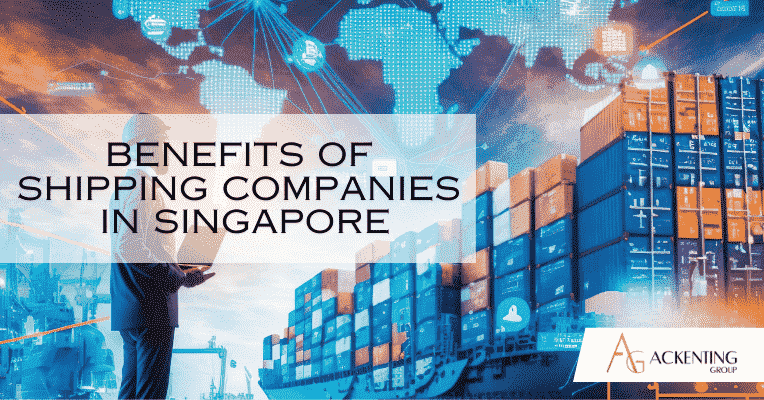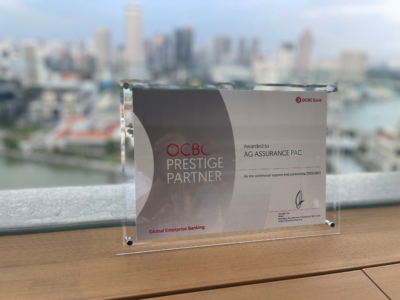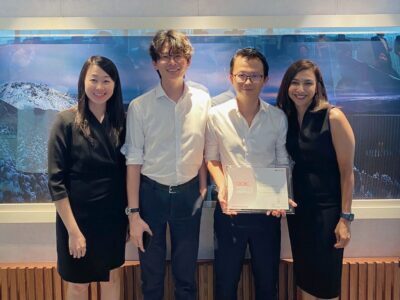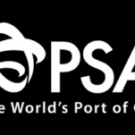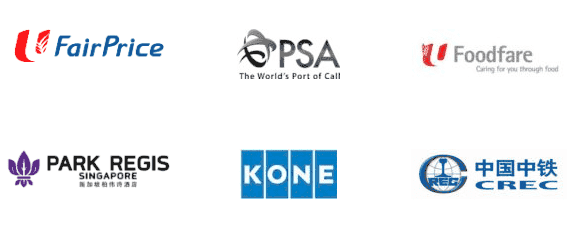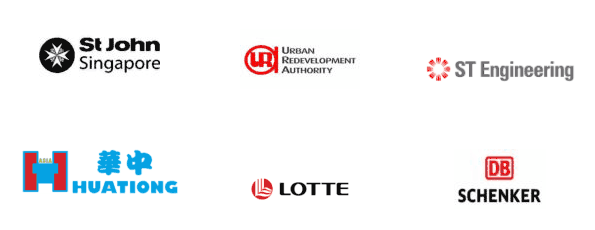Singapore stands as a pivotal maritime center in Southeast Asia, with its ports bustling with thousands of ships annually. This strategic position underscores the appeal of registering a shipping company in Singapore. A key advantage for setting up shipping companies in Singapore is the special tax treatment they receive, notably the exemption from corporate taxes for specific maritime activities.
Singapore maritime sector is a critical component of Singapore’s economic framework, accounting for 7% of the nation’s GDP. It encompasses over 5,000 companies and provides employment to more than 170,000 individuals. Singapore boasts the world’s second-largest port by TEU volume, with the ambitious Tuas Mega Port project set to further solidify this status. Expected to be fully operational by 2040, the Tuas Mega Port is projected to become the largest single automated container terminal globally. In 2019, the Port of Singapore Authority (PSA), the leading port operator in Singapore, initiated 5G trials aimed at automating its operations. This move is part of a broader strategy to develop future-ready port solutions in tandem with the Tuas Mega Port’s progression.
Tax Framework for Establishing Shipping Companies in Singapore
The taxation framework for shipping enterprises in Singapore is governed by Section 13A of the Income Tax Law. This provision allows both local and international shipping companies, operating vessels registered in Singapore and elsewhere, to benefit from tax exemptions on various incomes derived from maritime activities. Eligible entities for these exemptions include:
- Direct participants in the shipping industry
- Providers of ship management services
- Charter service companies
- Companies involved in towing operations
These tax benefits extend beyond Singapore’s borders, applying also in nations that have entered into double taxation agreements with Singapore, where maritime activities enjoy distinct considerations.
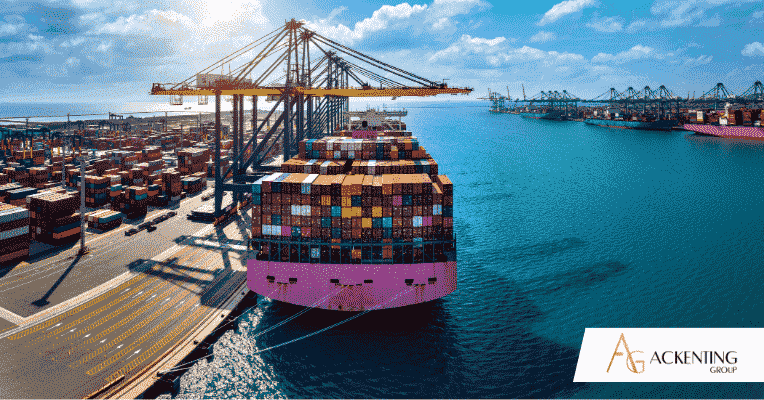
Leading Shipping Companies in Singapore
Singapore is renowned as a crucial maritime hub, hosting some of the top shipping companies with global and regional influences. Here’s a snapshot of the leading players in this vibrant sector:
- Maersk Line
- A Denmark-based titan in container shipping and logistics, with a notable footprint in Singapore.
- Strengths: Extensive global fleet and network, digital innovations, comprehensive logistics.
- Focus Areas: Containerized transport, cold chain solutions, digital tracking.
- Mediterranean Shipping Company (MSC)
- A global leader in container shipping, boasting a significant operation base in Singapore.
- Strengths: Massive container fleet, extensive port network, excellent customer service.
- Focus Areas: Container transport, intermodal services, full-scale logistics.
- CMA CGM
- A key global shipping entity with a strong Singapore presence.
- Strengths: Advanced fleet capabilities, commitment to sustainability, diverse service offerings.
- Focus Areas: Container transport, digital solutions, eco-friendly practices.
- Pacific International Lines (PIL)
- A Singapore-origin global shipping company known for its regional and international reach.
- Strengths: Regional expertise, agile operations, dedicated container services.
- Focus Areas: Regional container and bulk transport, integrated logistics solutions.
- Evergreen Marine Corporation
- A Taiwanese enterprise offering container transport services in Singapore.
- Strengths: Eco-friendly operations, modern fleet.
- Focus Areas: Container shipping, environmental sustainability initiatives.
- Hapag-Lloyd
- A German container shipping company with a comprehensive operation in Singapore.
- Strengths: Global operations, strategic partnerships, technological advancements.
- Focus Areas: Container transport, reefer cargo, digital customer tools.
- Orient Overseas Container Line (OOCL)
- A prominent player in container shipping and logistics.
- Strengths: Reliable services, cutting-edge technology, strong market presence.
- Focus Areas: Containerized transport, transhipment, digital logistics solutions.
- APL (American President Lines)
- A subsidiary of CMA CGM Group, focusing on container shipping.
- Strengths: Customer-first approach, advanced logistics and container services.
- Focus Areas: Global container shipping, logistics, specialized cargo handling.
- Wan Hai Lines
- Based in Taiwan, Wan Hai Lines has a strong operational presence in Singapore.
- Strengths: Regional expertise, feeder service specialization, growth commitment.
- Focus Areas: Intra-Asia container transport, regional logistics.
- Yang Ming Marine Transport Corporation
- A leading Taiwanese shipping company with extensive services.
- Strengths: Wide route coverage, modern fleet, comprehensive global network.
- Focus Areas: Container logistics, cold chain solutions.
Please be aware that being featured on this list does not constitute a formal endorsement from AG Singapore. The selection of these shipping companies is grounded in their widespread recognition and overall public perception. We welcome your feedback and suggestions for any notable companies you think should be included.
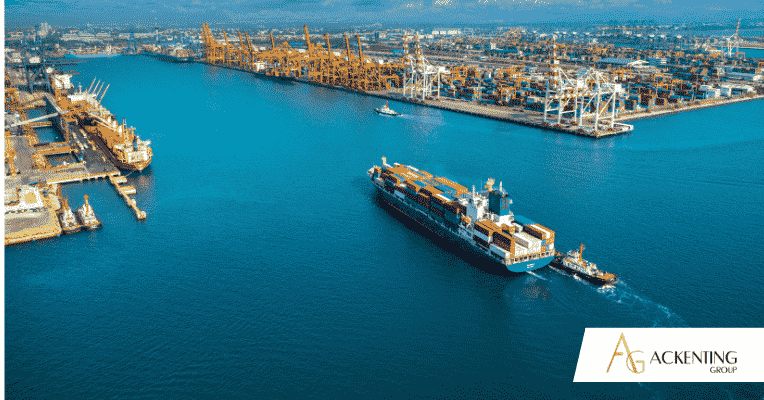
Tax Exemptions for Shipping Enterprises
Singaporean shipping companies facing the standard corporate tax rate of 17% can avail themselves of exemptions for shipping activities such as:
- Transport of people, goods, livestock, and mail
- Towing operations
- Ship chartering
- Offshore natural mineral exploitation
- Sale of vessels
- Income from ship construction
Special purpose vehicles issuing shares in shipping entities also enjoy tax exemptions under certain conditions. These regulatory benefits are partly outlined in Singapore’s Merchant Shipping Law.
Foreign-operated vessels in Singapore are eligible for tax exemptions for transporting individuals, goods, livestock, and mail from Singapore, with transshipment activities through Singapore’s port also being exempt.
Accounting and Incentives for Incorporating Shipping Companies In Singapore
Shipping companies must adhere to annual filing requirements, including Form C – Income Tax Return, to report income and activities for tax purposes. Our accountants in Singapore can streamline these accounting processes and, if needed, coordinate financial audits.
The Singapore Maritime and Port Authority offers various incentives to bolster the shipping industry, such as:
- The Approved International Shipping Enterprise program, offering 10-year tax exemptions on maritime income
- The Approved Shipping Logistics program, providing lower corporate tax rates on incremental logistics and freight service income
- The Maritime Finance Incentive, with up to 10-year tax concessions on leasing revenue
- The Maritime Seed Fund, supporting maritime startups
Auditing and Compliance
Under the Singapore Companies Act, shipping companies are mandated to appoint auditors in Singapore, adhering to specific requirements including the appointment timeline. However, exemptions are available for certain entities. Our accounting firm in Singapore is ready to assist shipping companies in business registration. Financial audit services cover a range of transactions and aim to ensure proper control over resources, with our audit firm in Singapore available for support.
For tailored accounting services and further assistance for your shipping business in Singapore, please reach out to our expert accountants in Singapore.




